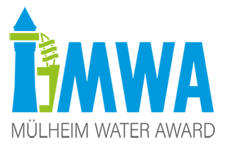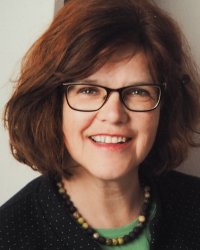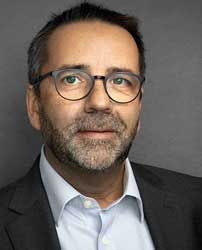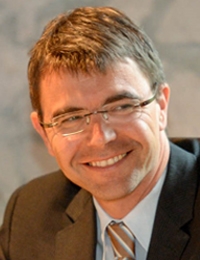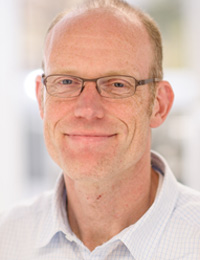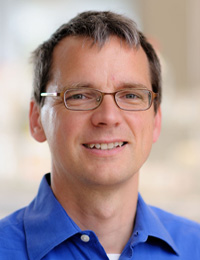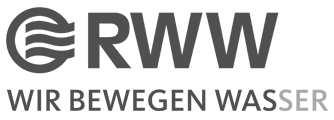Dr. rer. nat. Camilla Beulker (German Environment Agency)
Topics: Sustainability, Innovation, Urban Water Management
Since 2018, Camilla Beulker is head of department at the German Environment Agency, responsible for Drinking Water and Swimming Pool Hygiene with six different sections – including international and national policy matters, chemical, microbiological and toxicological laboratories and a technical area for experimental research on pilot scale water treatment.
Camilla Beulker studied biology at the Freie Universität Berlin and urban water management as a postgraduate course at the Technische Universität Berlin. She specialised in limnology and received her PhD in 2000 with a thesis on the role of interstitial organisms in bank filtration processes. For a period of twelve years she worked at the State Laboratory Berlin-Brandenburg as head of the section Environmental Health Protection. There she was responsible for sampling, laboratory analysis and quality management for the legal monitoring of drinking water, swimming and bathing pool water, surface and bathing waters and indoor air. In the last three years, she has focused on the implementation of the drinking water ordinance and the regulation of perfluorinated compounds. She is involved in several committees and is a member of the advisory board of IWW Mühlheim.
Prof. Dr.-Ing. habil. Steffen Krause (University of the Bundeswehr Munich)
Topics: Sustainability, Innovation, Urban Water Management
Steffen Krause studied process chemistry at the Technical University of Leuna-Merseburg, specializing in analytical chemistry. At the University of the Bundeswehr Munich, he has been head of the chemical-physical laboratory of the Chair of Urban Water Management and Waste Technology since 1991. He also completed his doctorate there on the topic of humic substances in the leachate of sewage sludge landfills and later habilitated in the field of water supply. Since 2017, he has been an adjunct professor in this teaching area.
In addition to chemical-analytical issues, he has been working on water treatment, especially filtration processes, water distribution networks and safety in water supply for more than 20 years.
He is a member of DVGW project groups on the topics of filtration and on the organization of the technical operation of water supply companies. Since 2010, he has also been a teacher at the DVGW Water Master School in Rosenheim.
Prof. Dr. Mark Oelmann (Ruhr West University of Applied Sciences)
Topics: Management, Economy, Supply
Prof. Dr. Mark Oelmann studied economics and ethnology in Marburg and at the Penn State University in the USA. He did his doctorate about the subject “About the realignment of price- and quality regulations in German water management” under Prof. Dr. Juergen B. Donges, chairman for many years of the “five wise men” of the German council of economic experts. Mark Oelmann’s thesis was honoured with the Ehrhardt-Imelmann-Price of the University of Cologne. He was able to gain practical experiences during his 13 years of working for the water sector and other related infrastructure sectors. In March 2011 he started working as a Professor for water- and energy economics at the University of Applied Sciences in Mülheim an der Ruhr. There he is responsible for the field “Energy- and water management”. He is a spokesperson for the first interdisciplinary research collaboration „Water Economy and Water Management“ at the University. Prof. Oelmann published around 70 publications and is member of numerous advisory boards and committees.
Prof. Dr. Stefan Panglisch (University Duisburg-Essen)
Topics: Process technology, Water technology
Since June 2014 Prof. Dr.-Ing Stefan Panglisch is the Chair of the Mechanical Process Technology department with focus on Water Technology at the University of Duisburg-Essen (UDE). He also is one of the scientific directors of IWW Water Centre. Previously, Stefan Panglisch was the head of the research and development department of inge GmbH, where he dealt with the new and further development of membrane materials, module housings as well as the operation modes of ultrafiltration modules. He also was responsible for the optimization of production processes and –plants. Before that Stefan Panglisch worked for more than ten years at the department of water technologies at IWW Water Centre, where he carried out numerous research- and consultation projects. Stefan Panglisch is a member of different working groups and committees, among them the IWA Specialist Group “Particle separation”, the DVGW- working committee „Water treatment processes“ and the ProcessNet specialist group „Membrane technology“.
Prof. Dr. Torsten C. Schmidt (University Duisburg-Essen)
Topics: Instrumental Analytical Chemistry, Quality
Torsten C. Schmidt studied chemistry at the Philipps-University Marburg and the Heriot-Watt University Edinburgh. He obtained his PhD degree in Analytical Chemistry in 1997 in Marburg. After postdoctoral and senior scientist positions at EAWAG/ETH Zurich and in Tuebingen he became full professor for Instrumental Analytical Chemistry at the University of Duisburg-Essen and scientific director at the IWW Water Centre. From 2013 to 2021, he was president of the German Water Chemistry Society. In 2013, he received the Fresenius Award of the German Chemical Society. His main research interests include the development and application of analytical methods with focus on separation techniques (GC, LC), sample preparation and compound-specific isotope analysis, process-oriented environmental chemistry and oxidation processes in water Technology.
